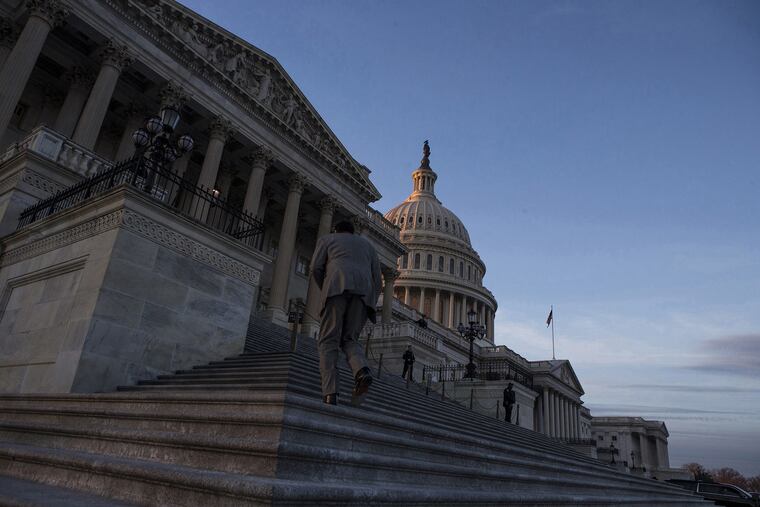Federal debt has defeated President Trump and Democratic candidates | Opinion
In a stunning display of bi-partisanship, the political class has decided the federal debt is a non-issue.

Imagine that the federal government received all of its tax revenues for the year in a lump sum on Jan. 1. With a balanced budget, the lump sum would last through Dec. 31. But with a budget in deficit, the money would run out before year’s end. Deficit Day, when the money runs out, falls on Oct. 3 this year — the earliest since all that stimulus spending of the Great Recession. From 12:01 a.m. on Oct. 4 until the stroke of midnight on New Year’s Eve, every dollar the federal government spends will have to be borrowed.
Donald Trump campaigned on the claim that he would pay off the federal debt within eight years. Yet, the federal debt has risen from $19.9 trillion on the day he took office to $22.5 trillion today. President Trump has stopped talking about the debt in public, and none of the 20-odd Democratic candidates for the presidency are mentioning it either. In a stunning display of bipartisanship, the political class has decided the federal debt is a nonissue.
This is understandable. It is politically, if not mathematically, impossible to pay off the debt. Consider what one might call the “least implausible plan” for paying it off: limiting the growth of federal spending to inflation. The federal government has managed this only 16 times since World War II. Assuming federal receipts continue to grow at their current rate, to pay off the debt, the government would have to stick to this plan for the next 50 years.
No, the government will never pay off the debt.
The good news is that there is no need to pay it off. All Washington needs to do is to keep making the interest payments. The bad news is that the interest is becoming extremely expensive. Currently, the government pays an average interest rate of 2.5% on its debt. That’s almost one-half trillion dollars annually.
Twenty years ago, the government paid over 6% interest. If the Federal Reserve were to allow rates to rise to that level again, the government would find itself paying well over a trillion dollars a year in interest alone. That means the debt is now also the Fed’s problem. When we’re next threatened with serious inflation, the Federal Reserve will have to choose between the economic damage of runaway inflation and the economic damage of an insolvent government.
Both parties have written off the government’s financial problems. On Twitter, President Trump recently tried to pass the buck to the Fed, demanding it lower interest rates further. Over 12 hours’ worth of debates in which 21 Democratic candidates for the presidency and 12 moderators discussed the future of the country, not one person mentioned the debt, the deficit, or Social Security’s imminent insolvency. Many, however, proffered grand ideas that would exacerbate these problems.
Deficit Day is a stark reminder of a looming financial crisis. Though annual tax receipts have been steadily rising, growing more than a trillion dollars over the past decade, the debt has grown faster. Washington doesn’t have a revenue problem; it has a spending problem. If the current crop of candidates can’t fix the problem, they should at least stop trying to make it worse.
But this won’t happen, because a politician’s first concern is not to do the right thing; it is to win elections. As long as voters decide they want an ever-increasing list of “free” things, we will continue to hear that health care is a right, college loans should be forgiven, and Social Security and Medicare must continue in their present forms. As surely as politicians will do nothing to rein in federal spending, you can also bet that voters’ appetites for “free” things will grow year after year.
Deficit Day will fall progressively earlier as our collective irresponsibility escalates. When our government can no longer afford even the interest on its debt, and the Fed has been reduced to the world’s most expensive printing press, we will find that both our government and our money have become worthless. When that comes to pass, we will have only ourselves to blame.
Happy Deficit Day.
Antony Davies is associate professor of economics at Duquesne University. James R. Harrigan teaches in the department of Political Economy and Moral Science at the University of Arizona. They host the weekly podcast Words & Numbers.